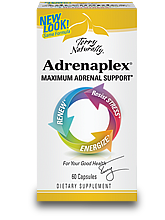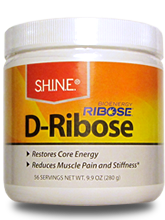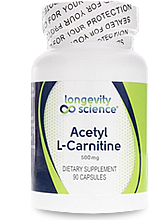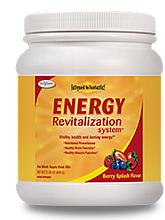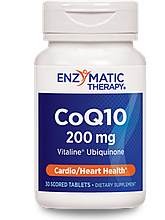Addressing Low Blood Volume and Decreased Heart Function in CFS
In this important article we will discuss a critical but usually overlooked part of addressing CFS and fibromyalgia effectively. It can be relatively easy to address, but is not very glamorous, and is therefore often forgotten. We will focus on new research by Dr. Barry Hurwitz and a team of University of Miami researchers, including Dr. Nancy Klimas, who is wonderful and one of my favorite people in the CFS community (though I sometimes disagree with her, I've always had enormous appreciation and respect for her).
Their recent study shows that patients with CFS have:
- A lower blood volume (basically are dehydrated),
- Fewer red blood cells to carry oxygen and nutrients (basically anemia, despite normal blood tests).
The study also discusses that although the heart may be smaller in CFS and beats less efficiently, this is likely caused by the dehydration and low blood volume, as opposed to primarily being a heart problem.
The good news is that all of these issues can be effectively addressed and optimized naturally — which can leave you feeling much better!
The Bottom Line First
There are several key things that you can do to address the low blood volume and low blood cell levels that will leave you feeling better:
- Address the dehydration. Despite your increased thirst and drinking a lot, most of you are still dehydrated because you're urinating even more. This occurs for several reasons, including underactive adrenal function and a decrease in antidiuretic hormone ("anti-peeing hormone"), both of which are routinely present in CFS because of the hypothalamic dysfunction ("blowing a fuse") that we often discuss. This is why you find yourself "drinking like a fish and peeing like a racehorse." Quick fixes:
A) Drink more water! Instead of counting glasses of water (an annoying way to spend the rest of your life), check your mouth and lips to see if they are dry. If they are, drink!
B) Eat more salt. Unless you have high blood pressure or heart failure, you need more salt than most people. In fact, many studies have shown that the more salt people eat the longer they live, and for most people the need to avoid salt has been a problematic medical myth (see six dangerous Medical Myths). Use an iodized salt or better yet sea salts (Cosco has a Mediterranean sea salt that is cheap). Enjoy salty foods as well.
C) Improve adrenal function. This is discussed at more length in Adrenal Support, but a simple way to do this is with an excellent herbal supplement that supports adrenal function.
D) Clinical experience has also shown that salt water (saline) IVs can be very helpful. The effects are transient though, unless other nutrients are added (e.g., the Myers’ Cocktails at holistic physician’s office).
- Increase your body's production of red blood cells. Although addressing the infections and hormonal problems we discuss overall in the S.H.I.N.E.® Protocol will do this, below are key things that will help.
A) Address low iron — even if your blood tests are normal but modestly low. The best blood test is called a "ferritin" level. Your doctor will say it is normal if it is over 12, but research has shown that in people with chronic fatigue, iron supplementation increased energy dramatically in people with a ferritin under 50 (see Iron Helps Fatigue — Even with Normal Iron Levels and No Anemia) who were not anemic. If the ferritin blood test is under 50, or the iron percent saturation blood test is under 25%, take 1-2 tablets of iron (29 mg with vitamin C) each afternoon or evening on an empty stomach for 4-6 months.
B) Address low testosterone and low thyroid levels — despite the normal blood tests. Both of these, especially the testosterone (use only the safe and natural bioidentical forms), increase red blood cell production.
- Improve your heart function. Though the study discussed in this article notes that the low blood volume and anemia are key, other studies and clinical experience show that nutrients that improve heart function also improve energy in CFS patients. These include:
A) Ribose 5 gm 3x day for 3 weeks, then twice a day.
B) Acetyl L-carnitine 500 mg 2x day (see research abstract at CAT.INIST).
C) A good multivitamin powder.
D) Coenzyme Q10 at 200 mg daily.
Give the above therapies 6–12 weeks to see the effect. But by one month, most of you will be feeling a lot better with these therapies. In addition, if you have not already done so, do the free Energy Analysis Program to tailor an overall therapy protocol to your case. Although you do not need to have your blood tests results, if they are available the program will also analyze the more important tests.
The American Board of Integrative Medicine (ABIHM) includes over 1,500 board-certified holistic practitioners who can help you. Their website can also help you locate a certified holistic physician near you.
What the Study Shows
The study looked at 146 people with chronic fatigue syndrome, 30 of which were very severely affected. It compared them to healthy controls and then factored in how active or sedentary the people were. People with CFS showed 25% lower heart contractility, so they pumped much less blood. They then did specialized testing which showed what the person's total blood volume was and also whether they had enough red blood cells, both of which have been shown to be low in the majority of those with severe CFS.
As all of the above problems have been shown to be common in CFS, the study explored whether there was predominantly a heart problem or whether all of these findings could be explained by dehydration and having too few red blood cells. I would note that, normally, having too few red blood cells would be called being anemic. Unfortunately, the standard blood tests for anemia compare the amount of blood cells relative to the blood volume. As both are low, the blood count tests come back as normal despite CFS patients in reality being functionally very anemic. As the study authors note "the elevated prevalence of low red blood cell volume suggests that the CFS subjects may have an anemia type that goes undetected by standard hematologic evaluations." In other words, people with CFS are likely to be anemic despite normal testing (being 6-13% lower than optimal depending on the severity of their CFS).
The role of decreased heart function in CFS has been a major focus of work by Dr. Paul Cheney, a chronic fatigue syndrome expert who is intimately familiar with the effects of heart problems, as he needed a heart transplant himself. He theorizes (and I am markedly oversimplifying his theory) that heart function decreases as an adaptation to not being able to properly handle the oxygen needed to make energy in CFS.
Chronic disease in general can trigger dehydration and low red blood cell volume, so there are many possible reasons for these occurring in CFS. Deconditioning can also then decrease heart function. This study was associated with another study looking at whether injections of a prescription blood cell stimulating hormone called "erythropoietin" would be helpful in CFS, which would naturally lead to some focus towards interpreting the results as being associated with a deficiency of blood cells as opposed to a heart problem. The benefits of erythropoietin therapy were modest relative to the cost and hassle though, and I think the researchers’ bias is fairly modest.
The authors conclude "given these findings, it may be prudent in the clinical setting to perform a direct examination of blood volume status in CFS patients and consider therapy for those with abnormal levels. A blood volume deficit may impact adversely oxygen delivery and nutrient supply, impair hemodynamic regulation (e.g., blood pressure and heart function), and contribute to the exacerbation of fatigue and other CFS symptomatology."
As their earlier study showed minimal benefit from only increasing the amount of red blood cells using erythropoietin, it again shows the need to use an overall therapy approach to address all the problems present in CFS. These include raising red blood cell mass and addressing the dehydration, but also addressing the underlying infections, adrenal under activity, and other problems that are at the root of these problems. As we know that most people with CFS will have the dehydration and "anemia despite normal blood testing", I don't think it is worth the cost of doing these expensive nuclear scans, but instead recommend the simple therapies discussed in the summary above, which we know are helpful in CFS. These are part of the S.H.I.N.E.® Protocol.
References
1Low Blood Volume and Red Blood Cell Mass study:
Chronic fatigue syndrome: illness severity, sedentary lifestyle, blood volume and evidence of diminished cardiac function. Barry E Hurwitz, Virginia T Coryell, Meela Parker, Pedro Martin, Arthur Laperriere, Nancy G Klimas, George N Sfakianakis, and Martin S Bilsker. Clin Sci (Lond), May 26, 2009; online ahead of print (see abstract).
2Reference for Iron study:
Iron supplementation for unexplained fatigue in non-anaemic women: double blind randomised placebo controlled trial. F Verdon, B Burnand, C-L Fallab Stubi, C Bonard, M Graff, A Michaud, T Bischoff, M de Vevey, J-P Studer, L Herzig, C Chapuis, J Tissot, A Pécoud, B Favrat. BMJ Volume 326 24 May 2003. 1124-8.

Jacob Teitelbaum, M.D. is one of the world's leading integrative medical authorities on fibromyalgia and chronic fatigue. He is the lead author of eight research studies on their effective treatments, and has published numerous health & wellness books, including the bestseller on fibromyalgia From Fatigued to Fantastic! and The Fatigue and Fibromyalgia Solution. His newest book (June 10, 2024) is You Can Heal From Long COVID. Dr. Teitelbaum is one of the most frequently quoted fibromyalgia experts in the world and appears often as a guest on news and talk shows nationwide including Good Morning America, The Dr. Oz Show, Oprah & Friends, CNN, and Fox News Health.
